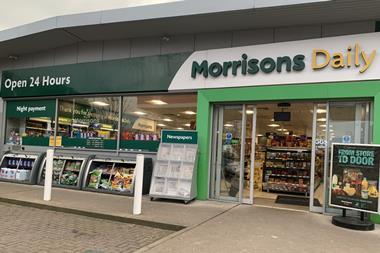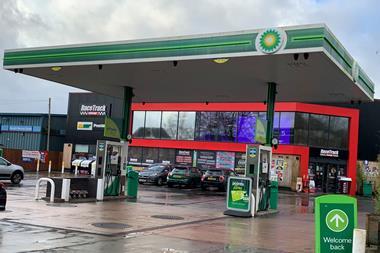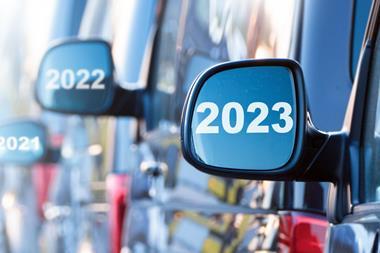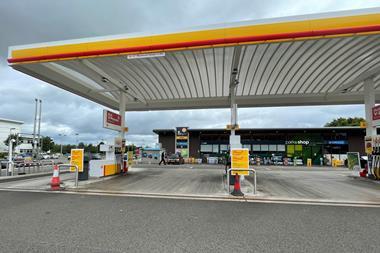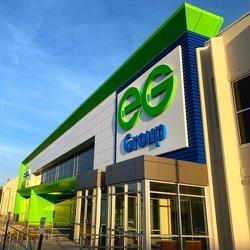
Is Zuber Issa edging closer to a deal to buy what is left of EG Group’s UK forecourt network, in a move that – depending on your perspective – could either simplify or complicate further the tangled corporate empire he oversees with his older brother Mohsin?
The Blackburn-based group’s latest annual report, published on 3 May, states that EG is “currently engaged in active discussions with Zuber Issa and his advisers regarding the sale of the retained UK business…with a view to announcing a binding agreement in the second quarter of 2024”.
EG – which is owned by the siblings, along with private equity firm TDR Capital – originally confirmed to investors in March that it was negotiating to sell the 34 sites that remained after the divestment of the majority of the estate to Asda. The potential sale would see EG retain bakery business Cooplands, its evpoint electric charging stations, as well as its Starbucks franchises, other than 23 locations that are co-located on the petrol forecourts. It will also keep its extensive overseas operations in continental Europe, Australia, and the USA.
However, should Zuber succeed in purchasing the forecourts, it raises questions about how he would run these separately to his EG commitments, as well as over the future of the roughly 350 petrol stations EG sold last October to Asda, which is also controlled by the brothers and TDR Capital, after they bought a majority stake for £6.8 billion in 2001. Zuber and Mohsin are co-chief executives of EG and sit on the executive board of Asda as “co-owners”. Former Marks & Spencer boss Lord (Stuart) Rose chairs both businesses.
At the heart of all these developments is an urgent need by the heavily leveraged EG Group to reduce its indebtedness after an expansion spree that saw it flourish from a single forecourt in Bury in 2001 to a multinational fuel, convenience, and foodservice combine with close to 6,000 sites across three continents. Although Zuber and Mohsin funded much of the growth personally, they have also relied heavily on external borrowings.
EG revenues in 2023 were over $28 billion (£22.3 billion), with pre-tax profits of around $1.4 billion. However, the global rise in interest rates has left it exposed, and the group has net debts of $5.9 billion, albeit down from $9.6 billion at the end of 2022.
EG, which also in April this year completed the sale of its KFC franchise restaurants in the UK, made just over $2 billion from divesting its forecourt sites to Asda, and has said that these proceeds, along with further disposals in the USA, will enable it to “significantly reduce net leverage” and extend term loans. It says it will remain a “leading global convenience retailer” with its headquarters in Blackburn.
The sale of the sites to Asda – which has its own debt headaches despite returning to profit in 2023 – has turned the supermarket group into a major player in the forecourt sector. It is completing a rebranding of the outlets – along with 116 former Co-op convenience stores and petrol stations it separately acquired last year – as Asda Express.
Newspaper reports, in the Sunday Telegraph and elsewhere, have suggested that, in addition to buying the remaining EG forecourt sites, Zuber could also be looking to offload his personal 22.5% stake in Asda and possibly stand down as joint chief executive of EG Group, leaving Mohsin to helm both businesses. However, under the plan, it is believed that Zuber would remain as a non-executive member of the EG board.
Whether or not Zuber strikes out on his own will depend on him securing a deal to buy the UK forecourts but the outcome may also be swayed by his personal relationship with his brother, which came under strain after the breakdown of Mohsin’s marriage. Earlier this year, the elder sibling confirmed he was in a relationship with Victoria Price, a former tax partner with EG’s previous auditor EY, although he has publicly denied a rift with his brother.
However, Zuber’s shareholdings in both businesses are understood to be the subject of complex agreements that require the agreement of all major shareholders to change.
Many of these questions could be answered before EG’s target deadline to secure a deal with its own co-chief executive is reached in a few weeks.


















